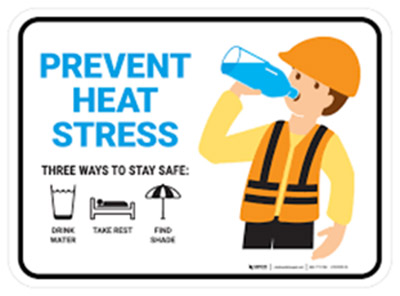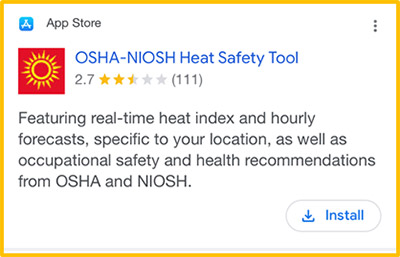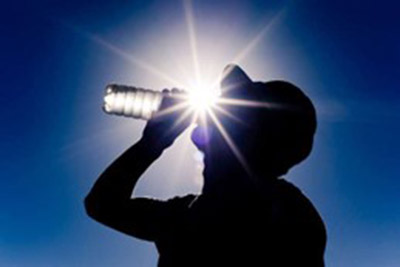Safety in the Sun: Signs of Heat Stress and How to Help - Sit Down with CEPRA
One of the greatest things about living in Florida is the way it lives up to its state nickname, "The Sunshine State." With an average of 230 days of sunshine per year, it makes sense why many choose Florida as their vacation destination. For those of us who make a living in the state, however, we understand how the sun here means business. Since we are closer to the equator than any other state, our sunshine is stronger, and consequently, can have a greater impact on the health of those around us. Therefore, we want to address the signs of heat stress, and how to both work and play safely.

Signs of Heat Stress and Heat Exhaustion
Both heat stress and heat exhaustion are caused by heavy sweating and not drinking enough fluids. Symptoms include heavy sweating, cramps, dizziness or blurry vision, headaches, nausea or vomiting, and fainting.
First Aid Help
If a person near you is showing signs of heat stress or heat exhaustion, have them drink water or a sports drink with electrolytes. Apply a cool compress to their skin. Move them to a cool, shaded place, such as under a tree or to a car with running air conditioning. Remove any bulky clothing or PPE to allow for air flow. Continue cooling the body until their temperature is below 100 degrees Fahrenheit. If these First Aid actions do not relieve the symptoms, seek emergency help.

Heat Stroke
Heat stroke symptoms include hot dry skin or profuse sweating, confusion or disorientation, slurred speech, headaches, seizures or convulsions, and very high body temperatures of over 104 degrees Fahrenheit. Heat stroke can be fatal and requires immediate medical attention at onset of symptoms. If a person near you is showing signs of heat stroke, call 911 immediately. Move the person to a cool, shaded place. Apply cool compresses and wet the person's clothing with water, fanning them as needed. Unlike with heat stress, do not give a person with heat stroke anything to drink - it could pose as a choking hazard in their altered mental state.

Staying Hydrated
It is important to stay hydrated throughout the day, especially when the day is spent outside. Good hydration improves one's concentration, mood, memory, flow of oxygen, and reduces headaches and stress. Drinking water also helps prevent muscle cramping. In contrast, dehydration increases stress hormones, such as cortisol, and can reduce one's ability to focus, recall information, and vision. Dehydration can also lead to kidney stones, urinary tract infections, high blood pressure, and stroke. The general recommendation is to drink eight 8-oz glasses of water per day, or more specifically, one ounce of water per pound of body weight.

Conclusion
Heat stress is a serious safety risk in Florida. Understanding the symptoms of heat stress, and how to get help when needed, are important pieces of information to know to help those around us. Remember to stay hydrated, stay shaded, and pace yourself. Enjoy your time in the sunshine.
